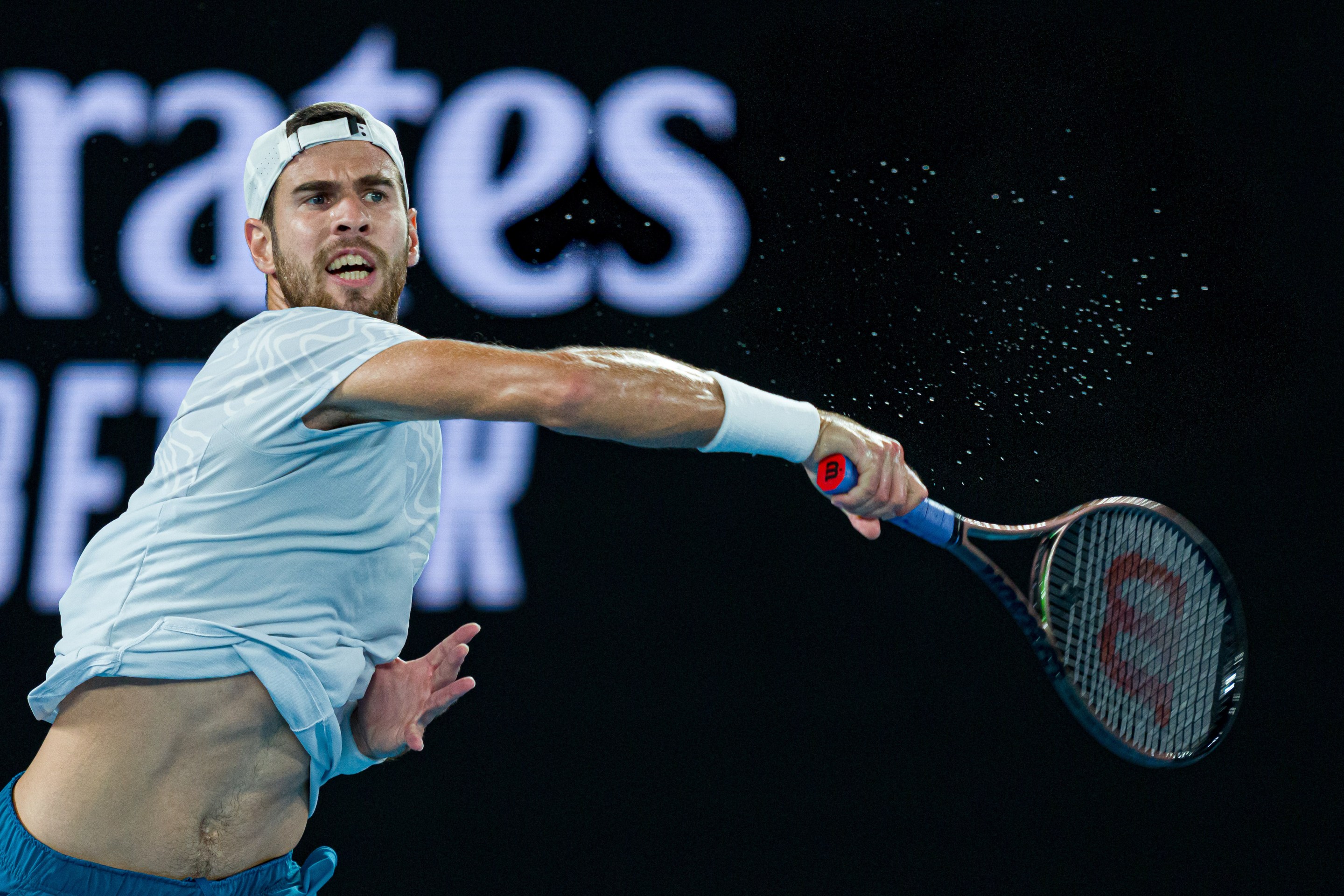Russian tennis player Karen Khachanov defended his support for the contested Armenian enclave known as Artsakh after beating American Seb Korda in three sets to advance to the Australian Open semifinals on Tuesday. Khachanov's support for Artsakh, also called Nagorno-Karabakh, drew criticism from Azerbaijan tennis officials, who protested to the International Tennis Federation and demanded that Khachanov, who has posted before about his connection to Armenia and Armenian heritage, be punished for his "hateful act."
After Khachanov's fourth-round win over Japan's Yoshihito Nishioka, he wrote on the camera lens: "Keep believing until the very end. Artsakh, hold on!"
In Khachanov's previous match against American Frances Tiafoe, he wrote, "Artsakh stay strong."
It's tradition for winning players to sign the camera lens, and they sometimes use the opportunity to make personal statements, send messages to fans, or, as was the recent case with Taylor Fritz, draw questionable doodles next to their signatures. But in a sport beset by geopolitical concerns, Khachanov's messages drew protests from Azerbaijan.
Azerbaijan tennis authorities announced in a press release that they sent a letter of protest to the ITF demanding Khachanov be "punished" with "harsh measures" for his "hateful act."
"Writing heartfelt wishes on the camera lens is a kind of tradition in tennis but Khachanov abused this, using it in his dirty plans," a translated version of the letter said, according to reports.
Khachanov defended his support for Artsakh following his win over Korda.
"I have Armenian roots,” he said. “From my father’s side, from my grandfather’s side, even from my mom’s side. I’m half Armenian. I don’t want to go deeper than that and I just wanted to show strength and support to my people."
Khachanov's messages and Azerbaijan's response have put a decades-long territorial conflict between Armenia and Azerbaijan back in the spotlight. In the early 1990s, following several years of post-Soviet fighting, the ethnically Armenian area of Nagorno-Karabakh broke away from Azerbaijan with Armenian support. Fighting has broken out multiple times in the intervening years. Most recently, in 2020, Azerbaijan launched a war that lasted for 44 days and successfully won back some of the territory claimed by Armenian-backed separatists. The 44-day war left 6,800 dead and ended when Russia negotiated a ceasefire agreement, which placed peace-keeping forces along the Lachin corridor, the only road linking Nagorno-Karabakh and Armenia.
Since Dec. 12 of last year, protestors from Azerbaijan have blocked the corridor, preventing food and medical supplies from reaching Nagorno-Karabakh. The Armenian government has said the protestors are backed by the government; Azerbaijan has said there is no blockade. The United States has called on the Azerbaijan government to reopen the corridor.
In his post-match messages, Khachanov did not mention Azerbaijan by name, and he said he had not received any communication from the ITF about his support for Artsakh. The ITF said that it passed the letter from Azerbaijan tennis officials to the Australian Open tournament organizers, who are responsible for overseeing player conduct and general atmosphere. Last week, the Australian Open banned Russian and Belarusian flags from tournament grounds after Ukraine's ambassador to Australia noted that a Russian flag was displayed near the court where a Ukranian player was competing.





